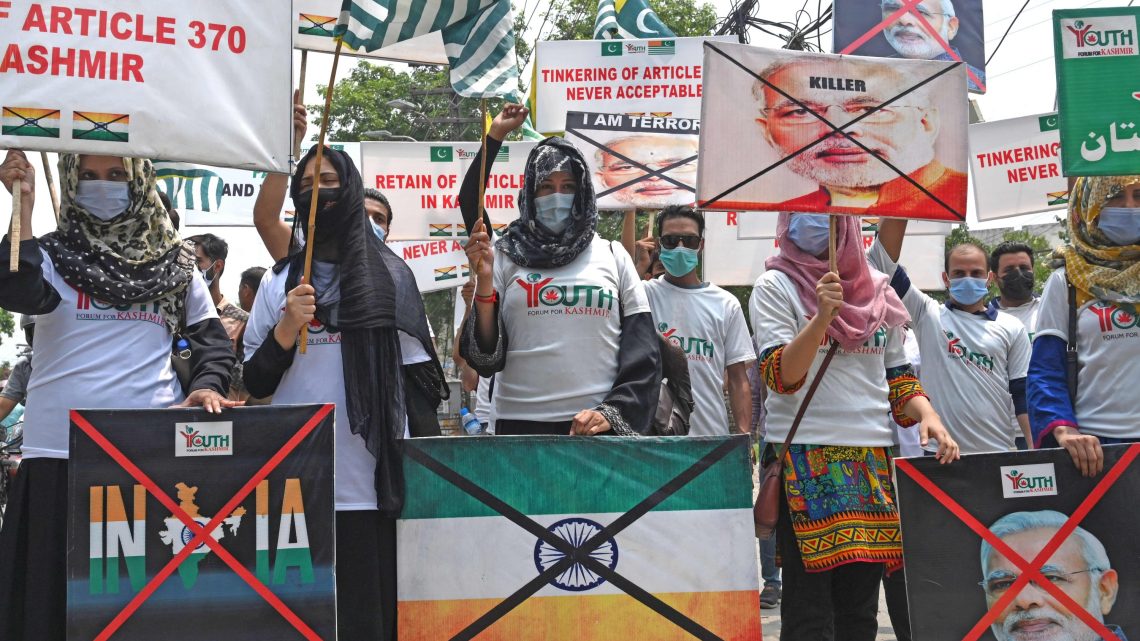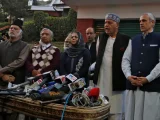
IIOJK Election Results Mark Kashmiris’ Rejection of Modi’s August 5, 2019 Decision
October 9, 2024In a significant turn of events in Indian illegally occupied Jammu and Kashmir (IIOJK), the National Conference (NC)—the largest party opposing the erosion of the region’s semi-autonomy—has triumphed in local elections. This vote serves as a clear referendum against Prime Minister Narendra Modi’s contentious 2019 decision and highlights Kashmiris’ defiance against New Delhi’s oppressive rule.
The NC secured 42 seats, predominantly in the Kashmir Valley, a stronghold of anti-India sentiment. In stark contrast, Modi’s Bharatiya Janata Party (BJP) managed to capture only 29 seats, all from Hindu-majority areas in Jammu. The Congress party, aligned with the NC, garnered six seats, further illustrating the fractures within the region’s political landscape.
Omar Abdullah, the NC leader and former chief minister, expressed astonishment at the overwhelming support. He pledged to honor the electoral mandate, committing to demonstrate that they are deserving of the trust placed in them. His father, Farooq Abdullah, emphasized that the mandate signifies a demand for governance free from oppressive “police raj” and called for the release of political prisoners.
In a late address, Modi hailed the elections as a testament to Indian democracy, branding the peaceful process a victory for the Constitution. However, he misrepresented the electoral sentiment by claiming the BJP remained the largest party based on vote share, which contradicts the results.
These elections allow IIOJK a semblance of self-governance through a regional assembly, yet it remains a dejure “union territory,” illegally controlled by New Delhi. The new government will wield limited power, and any restoration of full statehood is contingent upon sustained efforts. Farooq Abdullah boldly stated that the election results are a direct rejection of the August 5, 2019, decision to strip Kashmiris of their autonomy.
Celebrations erupted outside counting centers as hundreds of NC supporters waved flags and chanted pro-Kashmir slogans. This election, the first in a decade, marks a pivotal moment since Modi’s government revoked the region’s semi-autonomy, inciting fears of demographic manipulation and erosion of identity.
The 2019 changes split the former state into two centrally governed territories, Ladakh and Jammu-Kashmir. Both regions now face direct rule from New Delhi, with unelected administrators suppressing local governance. Residents live under increased surveillance and curtailed civil liberties in this oppressive environment.
The recent elections were conducted under tight military might by Delhi government, however, nearly 8.9 million eligible voters participating. Despite official claims of fostering democracy, many viewed the elections as a necessary protest against the 2019 abrogation of Article 370. Local parties campaigned on promises to restore statehood and address critical issues like unemployment and rising living costs.
In contrast, the BJP vowed to prevent any reversal of the 2019 changes while claiming to foster economic development. However, skepticism abounds, as past promises have gone unfulfilled.
As Modi celebrates victories in Jammu and Haryana, the situation in Kashmir remains bleak. The rhetoric of development rings hollow against the backdrop of systemic oppression. The people of Kashmir continue to assert their right to self-determination amid ongoing injustices.
Ultimately, while this election may offer a temporary victory for the NC, the struggle for Kashmir’s autonomy and identity is far from over. The fight for genuine democracy continues unabated.

